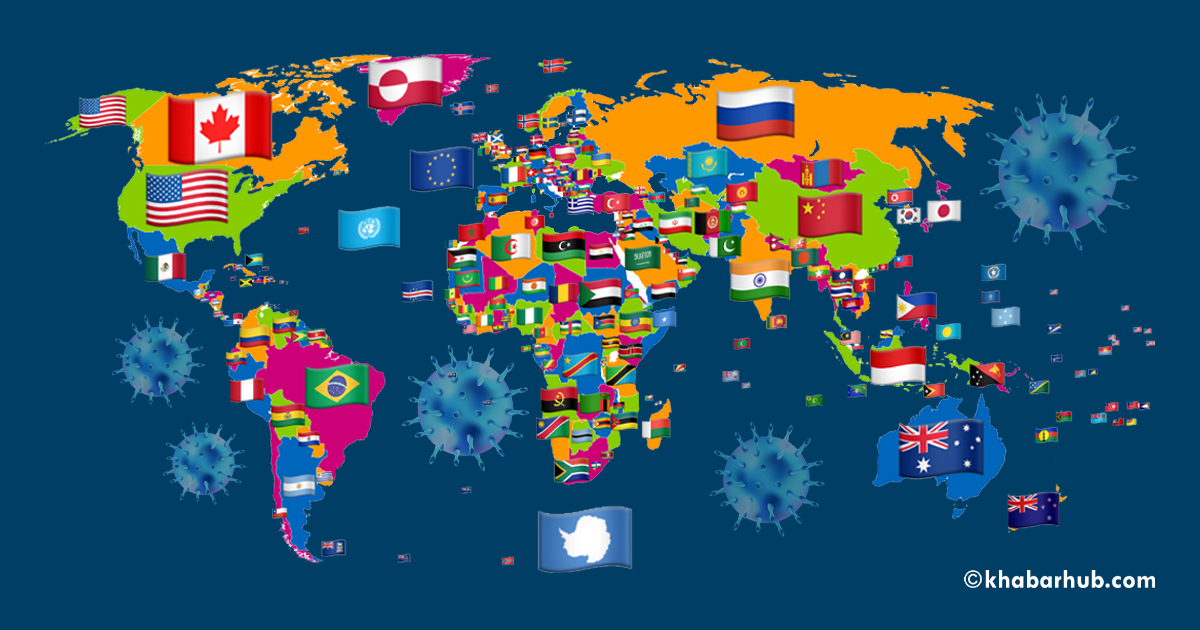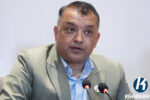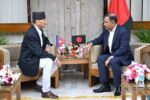It is observed that there is an absence of robust international cooperation to tackle a global pandemic. Meanwhile, the UN Secretary-General has called for a global ceasefire, reductions in sexual and domestic violence, and proposed a plan to tackle the devastating consequences of the crisis.
Unfortunately, major powers have been sluggish to join their hands to come up with a collective action plan in combating COVID-19.
The Security Council hasn’t met yet to discuss the COVID-19 situation and again it has failed to come up with any meaningful way out of its crippling paralysis. The G20 and G7 have yet to set out a comprehensive plan for COVID-19 response and recovery.
The article explores, what are the major effects and consequences of the Coronavirus pandemic on our lives and our societies?
The question has now become pertinent as to how to restart the economy and generate jobs while dealing with the looming challenge of public health.
The world is battling the COVID-19 global health emergency, and its economic and social ramifications. It is also racing against the clock to avoid the environmental crisis around the corner.
The pandemic has shown us the importance of being prepared collectively when crises hit. Only such an approach can deliver win-win policies for people, planet and prosperity.
This pandemic provides us with the opportunity to take a comprehensive look at the sustainability of our environmental, economic and social systems, at the way they interact and create more resilient societies. The crisis has shown that we can be more prudent in our consumption patterns, in order to be better aligned for health security.
The question has now become pertinent as to how to restart the economy and generate jobs while dealing with the looming challenge of public health.
A just, net-zero emissions and resilient recovery should create new opportunities for all and reduce inequalities in outcomes, for example with respect to health, where large economic returns from enhanced human capital could be achieved.
The global leaders have promised in a video gathering facilitated by WHO to quicken participation on a Coronavirus vaccine and to share research, treatment and drugs over the globe. However, the United States didn’t participate in the World Health Organization initiative, which is an indication of Donald Trump’s expanding disengagement on the worldwide stage.
The participation promise, made at a virtual gathering, was intended to show that affluent nations won’t shield the consequences of research from developing nations.
The gathering likewise spoke to an emblematic underwriting of the United Nations body even with Trump’s choice to suspend US installments and denounce its pioneers as subordinates of the Chinese Communist Party.
China and the US have blamed each other for tormenting and spreading disinformation over the Coronavirus flare-up, harming endeavors to make sure about collaboration at the G20, the normal universal establishment to deal with worldwide wellbeing outside the UN.
Instead an ad hoc alliance of 20 world leaders and global health figures were on the call, including the German Chancellor, Angela Merkel, the French President, Emmanuel Macron, and the American Philanthropist Bill Gates.
England will co-seat a joint Coronavirus worldwide reaction summit on 4 May planned for raising assets for immunization research, medicines and tests.
Responding to the mounting nationalism and protectionism, the United States, China and Russia are endeavoring to shape the outside condition to help their own key advantages.
England has been perhaps the greatest supporter of the worldwide exertion to discover a Coronavirus immunization, giving £250m to global research on the malady at the Coalition for Epidemic Preparedness Innovations.
Reality suggests that the absence of an organized worldwide reaction to the COVID-19 pandemic is completely in light of the fact that a large number of the most proficient states have been hit hardest, thus focused inside.
But the entrenchment of great power competition as a major feature of global politics is also playing a profound role. Smaller states must now step up to stabilize the global order.
Responding to the mounting nationalism and protectionism, the United States, China and Russia are endeavoring to shape the outside condition to help their own key advantages.
Be that as it may, the pandemic is excessively enormous, inescapable and expensive for any of these forces to viably oversee all alone, and consequently it requires multilateral arrangements without a second thought.
China’s bilateral-based ‘mask diplomacy’ has also turned out to be disastrous, with multiple states reporting that much of the equipment received is largely useless.
Relations are, as a rule, especially hurt with the European Union, where authorities are progressively vocal of the geopolitical underpinnings of China’s activities and the need to counter them.
While not paying attention to the pandemic at home, Russia is activating its disinformation capacities to give occasion to feel qualms about the inceptions of the infection and condemn western ways to deal with it.
Russia rushed to send help abroad, which likewise shows up to a great extent futile and to a greater degree a prop to fake the nation’s ability to react.
China and Russia are likewise proceeding with provocative military exercises, showing that they may attempt to exploit the world’s emphasis on the pandemic to advance their geopolitical points
The ‘America First’ doctrine of the Trump administration in the United States is increasing its antagonism with China and Russia as well as diminishing multilateral institutions and alliance relationships.
Most troubling is a finished surrender of the US authority, which verifiably has been essential in arranging and assembling worldwide reactions to different catastrophes.
Curiously, China shows up increasingly keen on endeavoring to rebuild the post-pandemic world in accordance with its own domineering points than really combatting it viably.
It is time for all the governments to strictly ensure that any measures taken to counter the pandemic must be necessary and proportionate, pursue legitimate purposes, be limited in time, be non-discriminatory and respectful of international law, including human rights law.
Again, the COVID-19 pandemic is a wake-up call towards the opening out of multilateralism. Trying to cope with the immediate devastating effects of the virus, nations have turned toward imposing unprecedented executive measures, including closing borders.
However, a virus knows no borders, and most of the countries in the world are affected. We must remain united in our shared humanity.
The fight against this global pandemic, which is taking so many lives and challenging our societies, needs more and enhanced international cooperation and worldwide solidarity.
Containing and countering this pandemic calls for a co-operative, transparent, science-based and coordinated global response.
We are concerned about the serious threat to all countries, particularly developing and least developed countries, countries in situations of conflict and post-conflict countries, where health systems are less prepared, as well as about the particular risk faced by refugees and displaced persons.
It is time for all the governments to strictly ensure that any measures taken to counter the pandemic must be necessary and proportionate, pursue legitimate purposes, be limited in time, be non-discriminatory and respectful of international law, including human rights law.
Data from all over the world should be shared openly and speedily in an effort to contain the epidemic and develop medicines and vaccines. Global coordination can overcome bottlenecks in production, and can make sure that the equipment goes to the countries that need it most.
(The writer is Associate Professor in Government and Politics, Jahangirnagar University, Bangladesh)









Comment